#jubilee republicans
Text
youtube
#hasanabi#hasan piker#politics#news#twitch#highlights#hasanabi highlights#hasanabi clips#hasan#jubilee#hasan jubilee react#hasanabi react#hasan react#hasan jubilee#hasanabi jubilee#hasan piker jubilee#hasan hogwatch#hogwatch#jubilee republicans#trump republicans#jubilee trump#trump jubilee republicans#Youtube
0 notes
Text
“(…) The great William, the man who was the biggest creator after God, According to Alexandre Dumas”
Théophile Gautier on Shakespeare, Le moniteur universel, 4th April 1864
#french romantics#found it in a paper on the shakespeare jubilee on 1864#the banquet organized bybthe republican romantics#got banned by the napoleon iii administration
7 notes
·
View notes
Text
youtube
1 note
·
View note
Photo
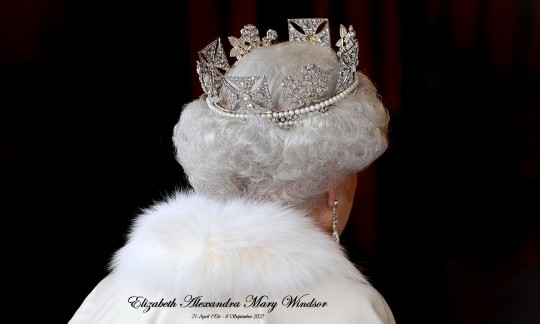
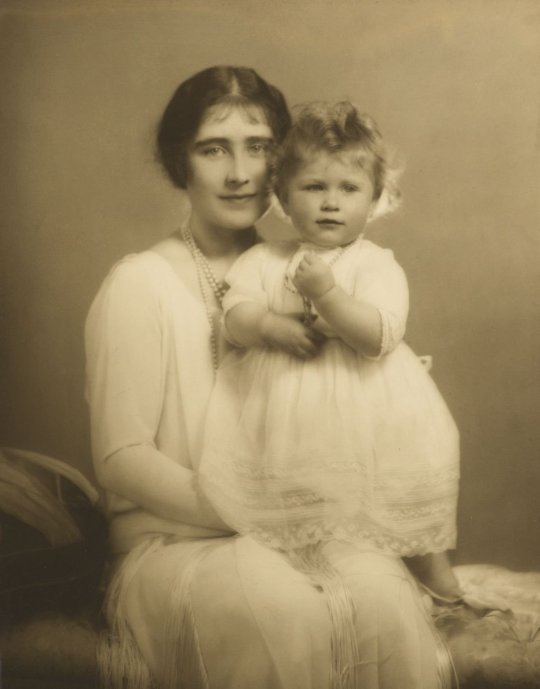
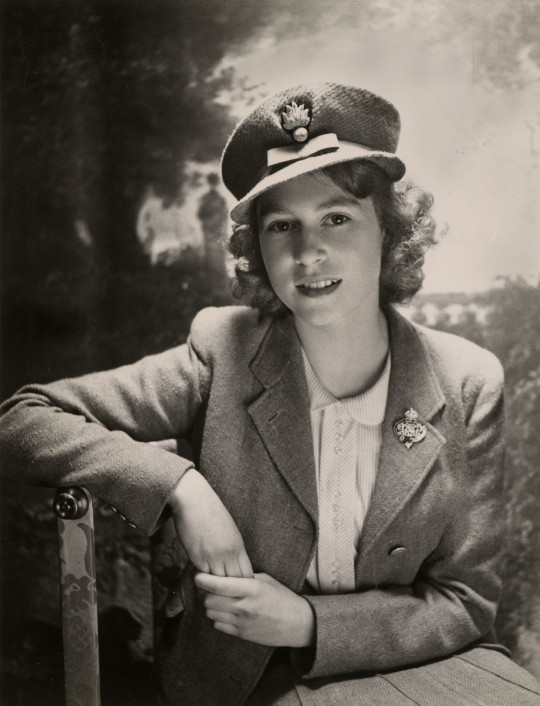
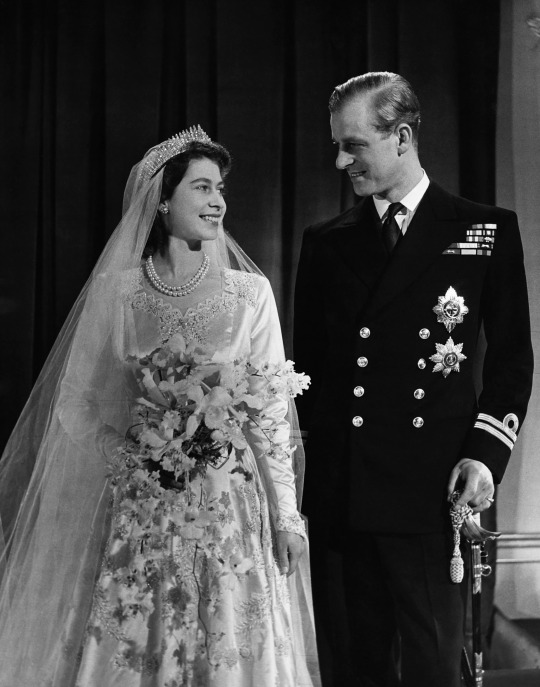
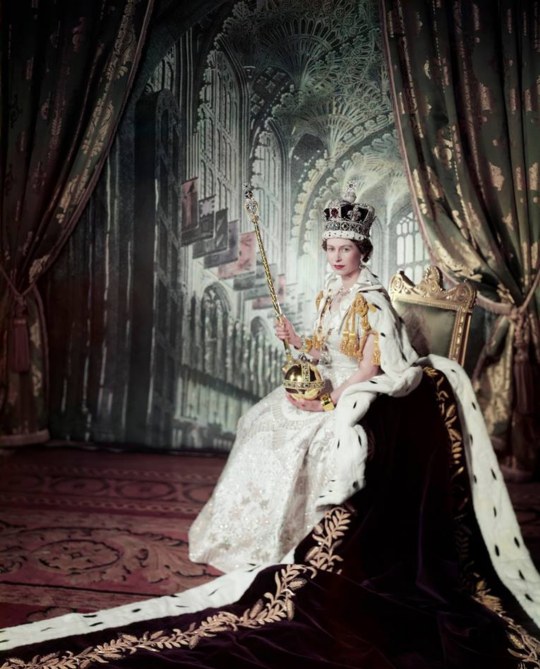
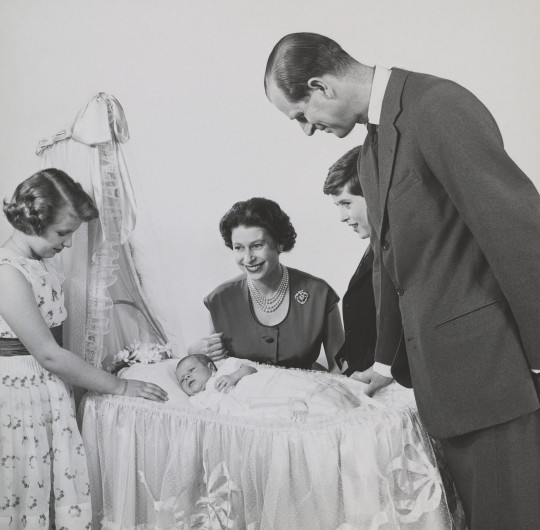
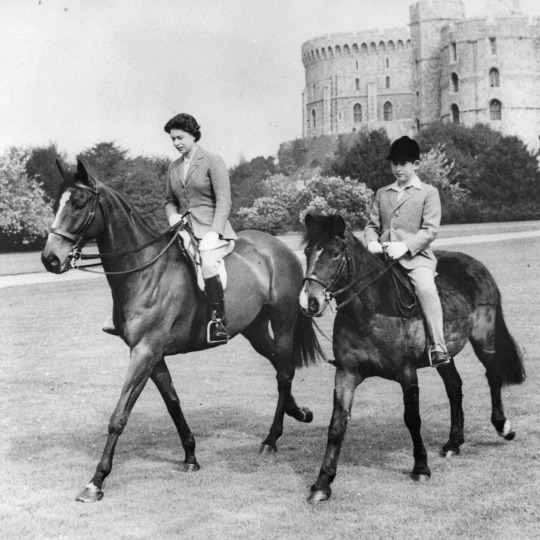
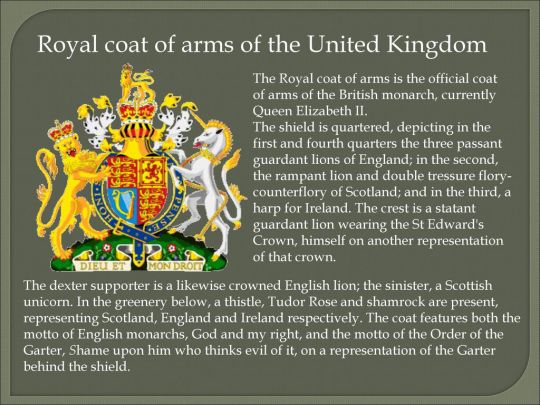
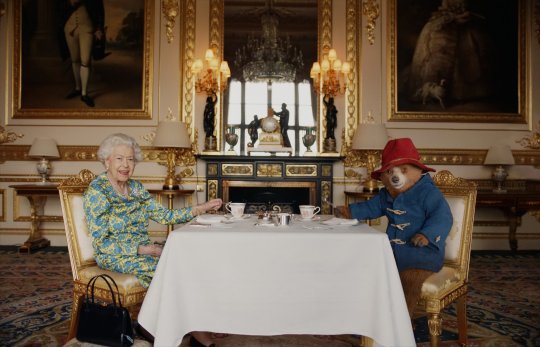
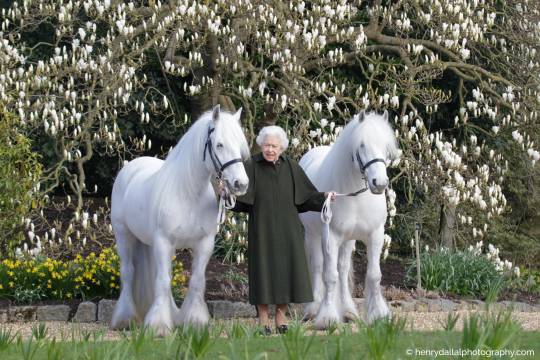
Queen Elizabeth II has died
Queen Elizabeth II, the United Kingdom’ s longest-serving monarch, has died at Balmoral aged 96, after reigning for 70 years.
Elizabeth II (Elizabeth Alexandra Mary; 21 April 1926 – 8 September 2022) was Queen of the United Kingdom and 14 other Commonwealth realms from 6 February 1952 until her death on 8 September 2022.
Her reign of 70 years and 214 days was the longest of any British monarch and the second longest recorded of any monarch of a sovereign country.
Elizabeth was born in Mayfair, London, as the first child of the Duke and Duchess of York (later King George VI and Queen Elizabeth). Her father acceded to the throne in 1936 upon the abdication of his brother, King Edward VIII, making Elizabeth the heir presumptive.
She was educated privately at home and began to undertake public duties during the Second World War, serving in the Auxiliary Territorial Service. In November 1947, she married Philip Mountbatten, a former prince of Greece and Denmark, and their marriage lasted 73 years until his death in April 2021. They had four children together: Charles III; Anne, Princess Royal; Prince Andrew, Duke of York; and Prince Edward, Earl of Wessex.
When her father died in February 1952, Elizabeth—then 25 years old—became queen regnant of seven independent Commonwealth countries: the United Kingdom, Canada, Australia, New Zealand, South Africa, Pakistan, and Ceylon (known today as Sri Lanka), as well as Head of the Commonwealth. Elizabeth reigned as a constitutional monarch through major political changes such as the Troubles in Northern Ireland, devolution in the United Kingdom, the decolonization of Africa, and the United Kingdom's accession to the European Communities and withdrawal from the European Union.
The number of her realms varied over time as territories have gained independence and some realms have become republics. Her many historic visits and meetings include state visits to China in 1986, Russia in 1994, the Republic of Ireland in 2011, and visits to or from five popes.
Significant events include Elizabeth's coronation in 1953 and the celebrations of her Silver, Golden, Diamond, and Platinum Jubilees in 1977, 2002, 2012, and 2022, respectively.
Elizabeth was the longest-lived and longest-reigning British monarch, the oldest and longest-serving incumbent head of state, and the second-longest verifiable reigning sovereign monarch in world history, only behind Louis XIV of France.
She faced occasional republican sentiment and media criticism of her family, particularly after the breakdowns of her children's marriages, her annus horribilis in 1992, and the death of her former daughter-in-law Diana, Princess of Wales, in 1997.
However, support for the monarchy in the United Kingdom remained consistently high, as did her personal popularity. Elizabeth died on 8 September 2022 at Balmoral Castle, Aberdeenshire.
“The Queen is dead, Long live King Charles III”
The Duchess of York with Princess Elizabeth, 30 June 1927 by Marcus Adams (The Royal Collection Trust),
Princess Elizabeth in uniform (1942) by Cecil Beaton (The Royal Collection Trust),
Princess Elizabeth and The Duke of Edinburgh on their wedding day, 20th November 1947 by Sterling Henry Nahum ‘Baron’ (The Royal Collection Trust),
Queen Elizabeth II poses on her Coronation Day on June 2, 1953, in London (Photography by Cecil Beaton),
Queen Elizabeth II with Prince Philip, Duke of Edinburgh and family - 16 Mar 1960 by Cecil Beaton (From the Collection of Queen Elizabeth The Queen Mother),
Queen Elizabeth II and her son, the Prince of Wales, out riding at Windsor Castle I May 18, 1961 (PA),
The Royal coat of arms of the United Kingdom used outside of Scotland,
Queen Elizabeth II Platinum Jubilee 2022 - Platinum Party At The Palace. The Queen Elizabeth II and Paddington Bear having cream tea at Buckingham Palace (BBC Platinum Party at the Palace),
Portrait of Queen Elizabeth II released by The Royal Windsor Horse Show on April 20, 2022 to mark the occasion of her 96th birthday.
#rip#queen elizabeth ii#elizabeth II#queen elizabeth#monarchy#united kingdom#royal#platinium junilee#windsor#markus adams#cecil beaton#theroyalcollectiontrust#paddington#bbc#balmoral#diana#king charles III#princess anne#prince andrew#prince edward#liveunique#history#britsh history#british royality
345 notes
·
View notes
Note
I'm seeing Judao-captelism being use to described Jewish people who voted Republican or dont fully agree with progressive socialist ideology. It's being used by black identitarians and marxists, so hopefully it says that way.





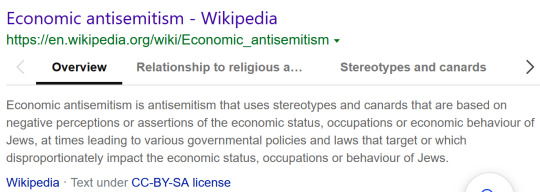

At its core, Judaism is about unity: the unity of the one G‑d, the universe and the unity of all people created in the image of G‑d. And yet, Judaism also gives the ordinary man an irrevocable right to his own property—as we see in the Torah’s division of the Land of Israel to tribes and families, as well as in the command to celebrate the Jubilee year (where all property is returned to its original owners every 50 years). The idea of land ownership by definition creates separation and division within society, contradicting the ideal of unity. How is it possible for us to live with these opposing ideals in our philosophy and practice?
____________________
Goes on with how the 'every 7 years fields are fallowed and whatever grows there is free game' evens thing out.
It's a good read, and I've got no doubt there's 47 Rabbi's with 63 different takes on the matter but it seems to be a reasonable conclusion to me.
I'd love to hear a Jewish perspective from some members of the Jewish community on all this since I'm just a gentile out here trying to do my best to help which lands me in the 'sticking with safer answers' area when complicated situations come up.
_______________
As for socialism, I could pull up Marx's take on "The Jewish Question" but it's just easier to paraphrase.
Marx's take was 'I don't mind Jewish people I just wish they weren't so Jewish' basic idea worked out to cultural genocide, everyone has to have the same celebrations, traditions and all that good stuff regardless of the history of that particular group since the group is getting absorbed into the collective.
Hopefully this here will give you the start of some tools to respond if need be, but honestly the thinking I'm having with this is the current mode is Rothschild conspiracies without the Rothschild's.
Jewish people just like everyone else are also individuals and each one will make up their own mind about whatever subjects they want, so you're gonna get these guys.

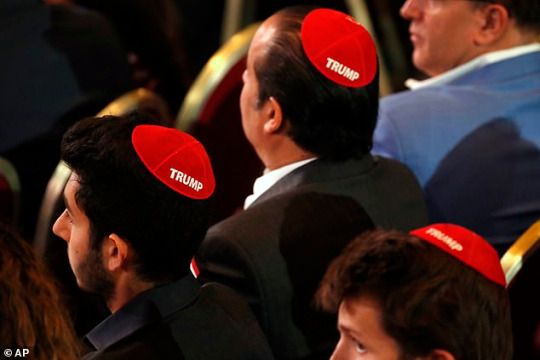
And folks in the community that actively hate the guy.
People trying to use phrases like Judeo-capitalism just show that they're willing to take a page out of the nazi playbook if it serves their purpose, much like the ones that try to claim the Jewish people today aren't the same as the one's from Jesus's time.
Genetics has proven that one wrong.
95 notes
·
View notes
Text
Thinking about those weird Jubilee panels where they're like "gay people vs. homophobes debate homophobia" or "black people vs. republicans debate racism" or "jewish people vs. white supremacists debate antisemitism" and on one side it's like four random well-adjusted non-media trained gay, black or jewish people off the streets and on the other it's a combination of highly paid writers for conservative outlets and freaks who spend every waking hour on hate forums and whose greatest accomplishment is the creation of a new slur.
8 notes
·
View notes
Text
Gyles Brandreth's Exclusive Extract Part 2
The Mail Plus | Published 26 November 2022
WHENEVER the names of the Duke and Duchess of Sussex come up in court circles, courtiers flinch and change the subject or refer to them as ‘persons who live overseas’.
If Harry and Meghan are mentioned to members of the Royal Family, they simply smile briefly and say ‘we wish them all the best’ and nothing else.
As I write this, members of the new King’s communications team are bracing themselves for what may come when Prince Harry publishes his much-talked-about memoir – the ‘accurate and wholly truthful’ account of his life – in January.
‘I’m writing this not as the prince I was born, but as the man I have become,’ said Harry when the book was initially announced. In fact, of course, he was not writing it at all: he was telling his story to a ghost-writer.
Harry’s tell-all memoir, for which he received an advance of $20 million (£16.53 million), was originally promised for the autumn of 2022. It seems he’d been informed his grandmother was quite poorly and decided to pause publication in consequence. Was he worried about adding stress, worry and disappointment to her final months? Possibly.
There is no evidence, however, that the Queen was distressed by her grandson’s decision to go ahead with the book in the first place. She ‘understood’ Harry’s desire to write his book, not only for the money but because he wanted to tell his story – to speak his truth, as Meghan might put it.
He wouldn’t have been the first member of the Royal Family to do so: the Queen remembered ‘the fuss there was’ in 1951 when her uncle, the Duke of Windsor, published his own ghost-written volume of memoirs, A King’s Story. He too had wanted to tell his truth, and he needed the money. The memoir itself has long since been forgotten.
Although the Queen had never read any of the books about the Royal Family, her attitude towards them had changed over the years.
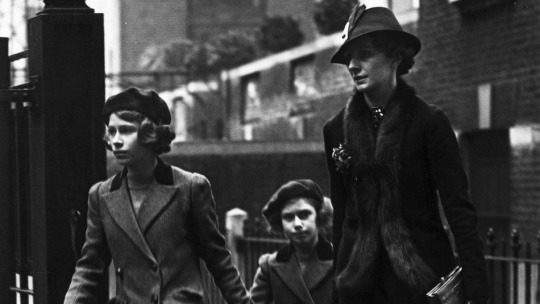
Indiscrete: Marion Crawford with the then-Princess Elizabeth and her sister in 1939
In 1950, when Marion Crawford published an innocuous memoir about her years in the royal household as governess to the then Princess Elizabeth and her sister Princess Margaret, the Royal Family was utterly appalled.
But by the time ‘Crawfie’ died, aged 78 in 1988, Elizabeth II had forgiven her, though I am not sure Queen Elizabeth, the Queen Mother, ever could.
More recently, the Queen’s dresser Angela Kelly published two books – Dressing The Queen: The Jubilee Wardrobe and The Other Side Of The Coin: The Queen, The Dresser And The Wardrobe. And she did so with her royal boss’s full blessing and approval.
As time went by, the Queen was increasingly able to take the long view. She had lived so long that she did sometimes feel that she had ‘seen it all before’.
For example, when the Duke of York (who did himself no favours with his self-justifying interview for Newsnight in 2019) was harrumphing about Harry and Meghan’s interview with Oprah Winfrey on American television in 2020, the Queen chipped in gently: ‘Didn’t Sarah do something similar?’
She did. In 2011, the Oprah Winfrey Network in the US aired Finding Sarah, a six-part TV series in which the former Duchess of York shared her tears and her heartache with a TV psychiatrist and the viewing millions.
It was by no means Sarah’s first transgression – those infamous photos of her having her toes sucked by her financial adviser come to mind. Yet the Queen continued to go out of her way to stay in touch with Sarah, even though Prince Philip found his former daughter-law ‘beyond the pale’.
The Queen’s greatest quality, her husband told me once, was tolerance. ‘She is infinitely tolerant,’ the Duke of Edinburgh said, ‘and forgiving.’
Famously, in 2012, in a historic encounter at Belfast’s Lyric Theatre, the Queen shook hands with Martin McGuinness, formerly an Irish Republican Army commander, despite having lost a close relative, Lord Mountbatten of Burma, to an IRA bomb in 1979.
Although she remained instinctively conservative, she was always tolerant of the traditions and beliefs of others and became increasingly accepting of the changing mores she saw around her. In the 1980s, she’d encouraged her then footman Paul Burrell to marry, and offered he and his wife a honeymoon at Balmoral.
The marriage later collapsed, and in 2017 Burrell married his new partner, Graham Cooper.
Discreetly, a few months after the marriage, a wedding present arrived from Her Majesty. ‘The Queen has always been incredibly broad-minded and accepting and generous,’ said Paul.
The Queen believed, too, in the reality of redemption. She looked for the good in people, not the bad.
So what does all this have to do with Harry and his wife, Meghan?
I can tell you, because I know this, that the Queen was always more concerned for Harry’s well-being than about ‘this television nonsense’, meaning both the Oprah Winfrey interview – which caused so much controversy – and the lucrative deal the Sussexes made with Netflix.
Again, her view differed from that of Prince Philip. I know from someone close to him that he thought Meghan and Harry’s interview with Oprah was ‘madness’ and ‘no good would come of it’.
I also know that the Queen liked Meghan’s mother, and was sorry the Markle family was ‘fractured’. And I know she was anxious that Harry should ‘find his feet’ in California and ‘find really useful things to do’.
The Queen was devoted to Harry. She loved him, she thought him ‘huge fun’, and she truly wished him well in his new life abroad.
Whenever Harry called his grandmother from Montecito, he was always put through to Her Majesty immediately.
The truth is that when her grandson told her he was marrying Meghan Markle, she was truly delighted by the prospect. She liked Meghan and told lots of people so. And she did everything she could to make her future granddaughter-in-law feel welcome.
She was concerned for her future happiness. At their first meeting, the Queen said to Meghan: ‘You can carry on being an actress if you like – that’s your profession, after all.’
She would have been totally understanding if Meghan had decided to continue her career. But the former Suits actress was ready for royal duty and, of course, the Queen was delighted by that. She was particularly delighted by the enthusiasm Meghan showed for the Commonwealth and by the commitment she made to do ‘whatever you think we should be doing for the Commonwealth’.
Indeed, Meghan promised that when it came to the Commonwealth, she wouldn’t let Her Majesty down.
The Queen (who, of course, had seen it all before) understood that Harry’s girl might find adjusting to royal life ‘challenging to begin with’ (as she put it). ‘It is very jolty, but you soon get used to it’ – that was Her Majesty’s experience going back many years.
To help Meghan, the Queen suggested that her daughter-in-law, Sophie Wessex, would be an ideal mentor. ‘Sophie can help show you the ropes,’ said the Queen.
Meghan made it clear that she did not feel she needed Sophie’s help. She had Harry. The Queen was a little concerned at that, and concerned, too, when word reached her that Meghan was reportedly occasionally a bit ‘high-handed’ with staff. The Queen put it down to pre-wedding nerves.
Harry and Meghan’s wedding in 2018 was warmly welcomed by all and sundry. No great play was made of it, but it was generally reckoned ‘a good thing’ having a mixed-race person joining the Royal Family.
Harry’s father expressed his genuine delight; Harry expressed his dewy-eyed devotion; Meghan announced she would retire from acting and become a British citizen (this may not happen, since you need to be resident in the United Kingdom for three consecutive years before you can apply for citizenship as a spouse).
Less than a month after the wedding, the Queen took Meghan on her first solo outing – to my old constituency, the City of Chester. The date marked the first anniversary of the Grenfell Tower tragedy and the Queen wore a green outfit in memory of the victims of the fire.
Meghan (in cream-coloured Givenchy) looked beautiful – and did her bit, effortlessly and well, to the manner born. She kept a step behind the Queen without fail, she smiled, she chatted, she coped with her hair in the blustery weather and she admitted she had never been to the North of England before but was ‘loving it already’.
‘Top marks,’ said the Queen, who had chosen this particular day for her new granddaughter-in-law’s induction to royal duty, in part because it was ‘a fairly typical day’, but mainly because the programme included a visit to a theatre – ‘and she is an actress after all’.
The courtiers accompanying the royal party that day included Samantha Cohen, former assistant private secretary to the Queen, who had been persuaded to stay on in royal service to help Meghan as she began her new life as a member of the Family Firm.
Unhappily, as we know, it did not work out. During their short time as working members of the Royal Family, quite a number of staff left the Sussexes’ service, including Cohen and another private secretary, two personal assistants and two nannies. Cohen, after she had left, reportedly said it had been like ‘working for a couple of teenagers’. Others called Meghan ‘an outrageous bully’ and ‘a narcissistic sociopath’. Meghan’s solicitor denied the allegations, saying they were part of a ‘calculated smear campaign’.
The only concern the Queen let slip in the early days of the Sussexes’ marriage was to wonder to a friend if Harry wasn’t ‘perhaps a little over-in-love’. This was as far as she came – to my knowledge at least – to ever uttering a word against the new Duchess of Sussex.
On June 4, 2021, at the Santa Barbara Cottage Hospital in California, Meghan, the Duchess of Sussex, gave birth to her second child and first daughter and she and her husband, Harry, Duke of Sussex, decided to call their newborn Lilibet Diana – in honour of the Queen, Harry’s grandmother, and his mother, Diana, Princess of Wales.
Lilibet had been King George V’s pet name for his favourite grandchild, based on the way Princess Elizabeth pronounced her name when she first began to talk. It was a very personal nickname: only a tiny handful of people outside the Queen’s immediate family called her Lilibet throughout her life.
According to the Sussexes, Harry sought his grandmother’s permission to use her family nickname as the Christian name for her 11th great-grandchild. The Queen’s recollection was a little different.
According to the Queen, Harry told her the Sussexes wanted to call the baby ‘Lilibet’ in her honour and she accepted their choice with good grace, taking it as the compliment it was intended to be.
Others in the family found the choice ‘bewildering’ and ‘rather presumptuous’, given that ‘Lilibet’ as a name had always been intimately and exclusively the Queen’s.
Later, the Queen said: ‘I hear they’re calling her “Lili”, which is very pretty and seems just right.’
Now that the Queen is dead, Lili Mountbatten-Windsor is seventh in the line of succession to the British throne – one behind her brother, Archie, and one ahead of her great-uncle, Prince Andrew.
As a male-line great-grandchild of a monarch, she was not a princess during Elizabeth II’s lifetime, but, technically, under a letters patent issued by George V in 1917, she could be entitled to become a princess now that her grandfather Charles is King.
This is not a likely prospect, however, given that Lili is being brought up in America and the Sussexes have withdrawn from official royal life in the United Kingdom.
The Queen took firm action in January 2020 when Harry and Meghan announced their desire to ‘step back’ from their lives as ‘senior royals’.
They planned to divide their time between the United Kingdom and North America; they wanted financial independence; they hoped to be able to continue to serve Queen and Commonwealth, but on their own terms. It was a naive hope and not to be. The Queen convened a family meeting at Sandringham – attended by Charles, William and Harry – and a way forward was agreed.
Harry and Meghan could do as they pleased, but they could not represent the Queen while doing so. Their HRH titles would be put in abeyance and Harry, to his dismay, was required to give up his royal patronages and military appointments. Harry was distressed, as he put it, ‘that it should come to this’. So was his grandmother.
In a personal statement, she made it clear that Harry and Meghan would always be close members of her family, and she went out of her way to praise her American granddaughter-in-law. But she was equally clear that she wasn’t going to have a couple of freelance royals roaming the world doing their own thing in any sense in her name.
The Duke of Edinburgh was not pleased: he did not believe Harry and Meghan were doing the right thing, either for the country or for themselves. ‘It’s a big mistake to think about yourself,’ he told me, more than once. ‘No one is interested in you in the long run. Don’t court popularity. It doesn’t last. Remember that the attention comes because of the position you are privileged to hold, not because of who you are. If you think it’s all about you, you’ll never be happy.’
Although Prince Philip regretted Harry’s decision, he did not get involved in its aftermath. On the day the Queen held her Sandringham ‘summit’, he made himself scarce, deliberately leaving the main house at Sandringham and retreating to Wood Farm.
‘I’ll soon be out of it,’ he said, ‘and not before time.’
George Harewood, the grandson of Queen Mary and King George V, remembered a family where emotional inhibition was the order of the day. ‘We did not talk of love and affection and what we meant to each other,’ he said, ‘but rather of duty and behaviour and what we ought to do.’
That was the Windsor way – and the world Elizabeth II was born into, a million miles from the world of Meghan Markle who, famously, said of her relationship with Prince Harry ‘we’ve just focused on who we are as a couple’, and ‘this is for us. It’s part of what makes it so special, that it’s just ours.’
There was a streak of hysteria in Diana, Princess of Wales: you sensed it even with a brief acquaintance. Some see a streak of narcissism in Meghan, Duchess of Sussex. The Queen was not like that.
The Queen was as sane and sensible as they come. She kept her feet on the ground. (Actually, spending time with her, I noticed she stood for long periods, feet slightly apart, moving her weight regularly from one foot to the other.)
She was rarely flustered: however hectic the schedule, however many stops on the tour, her own steady pace did not vary. ‘Steady as she goes’ was her way – but it wasn’t all plain sailing. Now and again, she did hit choppy waters.
But if you asked her ‘how are you?’, she would invariably reply: ‘Very well, thank you.’ She would never say, as Meghan famously did: ‘Thank you for asking, because not many people have asked if I’m OK.’
Unlike Queen Elizabeth the Queen Mother, she did not avoid unpleasantness by putting her head in the sand but nor was she an interfering busybody.
Time heals so much and ‘least said soonest mended’ is a policy that often pays dividends. The Queen believed in prayer and patience and hoping for the best.
Sometimes she admitted to being tired at the end of a long day, but Elizabeth II never complained – ever – of doing her royal duty.
‘I can’t believe I’m not getting paid for this,’ Meghan is reported to have said, in an aside, while meeting Australians on her first royal tour. That was not something the Queen would ever have said – or thought.
Nor, according to the Duke of Edinburgh, did she ever cry. Some thought they detected tears when the Royal Yacht, launched by the Queen in 1953, was taken out of service in 1997. ‘It was the middle of December,’ snorted Prince Philip. ‘It was bloody cold. We all had tears in our eyes.’
Crying in public is not the Windsor way. The only person seen to conspicuously shed a tear on the day of the Queen’s funeral was Meghan.
To the Queen, the parallels between Harry’s marriage to Meghan and that of her uncle David, the name she used for Edward VIII, to Wallis Simpson, would have been obvious.
The Prince of Wales (who became Edward VIII) and the Duke of York (who became George VI) were brothers, born only a year or so apart in the mid-1890s, and very close when they were young. The present Prince of Wales (William) and the Duke of Sussex (Harry), are brothers, too, born only a year or two apart in the early 1980s, and they, also, were very close when they were young.
With each set of brothers, the arrival of a 35-year-old American divorcee changed the dynamic of their relationship and ruined everything. And, like the Duke of Windsor, Harry opted for a life in exile. In 1956, the Duchess of Windsor published her own book – The Heart Has Its Reasons – just as surely as Meghan will one day publish hers, possibly with a not dissimilar title.
That same year, the Windsors even gave a no-holds-barred television interview to the Oprah Winfrey of the day, Edward R. Murrow, appearing on the legendary broadcaster’s Person To Person chat show.
Four years earlier, the Duke had returned to England for the funeral of the late King, his younger brother, and reported to his wife that, superficially, he was handled impeccably by courtiers and relations alike – ‘but gee,’ he added, ‘the crust is hard & only granite below.’
Is that how Meghan feels? We may know one day when she ‘speaks her truth’ in full.
The Duke of Windsor returned to England again in 1953 to attend his mother, Queen Mary’s funeral, but was not invited to the family dinner at Windsor Castle that followed. He wrote to his wife: ‘What a smug, stinking lot my relations are and you’ve never seen such a seedy worn-out bunch of old hags most of them have become.’
Whether Harry, when talking privately to Meghan, has ever been as vitriolic about his family as the Queen’s Uncle David was when writing privately to Wallis, we shall never know. Or perhaps we shall.
Seventy years on, Harry chose not to attend the Duke of Edinburgh’s memorial service at Westminster Abbey. And when he and Meghan came over from California for the Queen’s Platinum Jubilee celebrations in June, they were welcomed at some, but by no means all, the family gatherings.
‘Family rifts are always sad,’ the Queen once said to her cousin Margaret Rhodes.
In later life, the Queen came to regret not having been closer to her uncle David. Had she lived on for a few more years, she would almost certainly have continued to provide loving support to Harry and his wife.
Would that have made a difference? Shortly before Elizabeth II’s death, Meghan let slip in an interview that she was not obliged to sign an NDA (non-disclosure agreement) when she and Harry stepped down from their royal duties in 2020.
She also revealed that when she returned to their home at Frogmore Cottage in Windsor for the Queen’s Platinum Jubilee celebrations, she’d found a journal that she had kept during her days as an active member of the Family Firm.
This sorry Sussex saga will run and run, just as the earlier sorry saga of the Duke and Duchess of Windsor did from the time of the Abdication in 1936 until their dying days.
When we get to the Coronation of Charles III, the issue of ‘Harry and Meghan’ – where they are seated, what uniform (if any) he will be allowed to wear, what her body language is telling us, etc, etc – will be unavoidable.
And, from the new King’s point of view, deeply regrettable.
In 2022, when she heard that Harry and Meghan would not be attending the memorial service for the Duke of Edinburgh, the Queen reportedly said: ‘Thank goodness.’
What did she mean? Thank goodness they’re not coming? Or thank goodness, because they’re not coming the press coverage won’t be all about them? I suspect the latter, but I don’t know. I do know that in 2020, when she read that Pope Francis had used his Sunday morning homily to urge the faithful to steer clear of gossip, calling it ‘the devil’s work and more deadly than the coronavirus’, she heartily agreed.
Tentatively, I once raised all this with the Duke of Edinburgh. I suggested to him that he and the Queen were both ‘emotionally self-sufficient’. He agreed, but added: ‘Being emotionally self-sufficient does not make one unfeeling.’
The Queen was delighted when Zara and Mike Tindall named their middle child Lena Elizabeth. She was, however, confused when told the name is pronounced ‘Lay-na’.
‘It is short for Elena,’ explained Zara.
‘What’s wrong with Elena?’ asked the Queen, ‘Elena’s a lovely name.’
‘Her initials would then have been E.T.,’ said Zara.
‘I’m afraid you’ve lost me there,’ said the Queen.
#i missed part 1 yesterday#will post it right after this one#elizabeth: an intimate portrait#gyles brandreth#queen elizabeth ii#biography
48 notes
·
View notes
Note
Don’t you find it weird that Charles and Camilla barely get any negative articles about them and they always seem to send William and Kate to the more difficult countries?
I've never thought about this! But wait this actually makes a lot of sense because I cannot remember the last time Charles and Camilla had a tour in a country where imperialism is a widespread debate. Last year Charles kind of got some blowback in Canada, but Canada still has some very nice ties with the UK. Meanwhile the then Cambridges had to suffer in the Caribbean. I found it very odd that Charles and Camilla didn't do a high-profile foreign tour to a place other than Canada during a Jubilee year.
In recent years, Charles has done state visits to countries in Africa and other places where ties with the British are more controversial. He was in Rwanda in June 2022 and was met with discussions about keeping the Queen as head of state. But he hasn't done any high-profile tours in a long while . . . hm. The last big tour of Africa was Harry and Meghan's (Anne's and other members that have gone since never got the same amount of eyes) and William and Kate's disaster tour of the Caribbean was only just over a year ago.
I think I'm going to keep an eye on where he's traveling next. Germany is obviously tame, although I think it's ridiculous how the media is trying to force it as a success because the British Royals are Germans themselves and Charles is "returning to his homeland". France is also tame, which is why I find it a joke that they postponed because of the protests. Maybe it's a security issue, but I doubt Charles and Camilla would be in direct danger. It would have been super cool if he'd gone anyway and kept up a Keep Calm & Carry On attitude, but now he looks as if he didn't want to go because the French plebs wouldn't roll out the red carpet for him.
Anyway, I think we should be interested in future high-profile tours to these places: India, Australia, and the Caribbean. There's a great scene in The Crown where Elizabeth tells her children that they have to visit these places so they don't have any "silly thoughts about independence". They have to visit these countries in order to promote British interests and the monarchy, they can't just ignore them. India doesn't have the King as head of state but they are a member of the Commonwealth (the largest by population) and its history with the British Crown is violent and disturbing. Australia is usually a huge success for the royals but in recent years there has been a lot of republican sentiment and talk of colonization. The Caribbean encompasses lots of countries and has proven to be a difficult place for the royals to be accepted. It would be interesting if upcoming visits to these countries are given to William and Kate or even Sophie and Edward. When royals go to these countries the criticism is very pointed and direct, Charles has always had an ego and a childish need for praise, plus, as head of state, he is the living embodiment of the British Crown. When he travels to countries that want to remove the King as head of state, they're talking about Him, not his mother. Their issues would be with him.
Thank you for this ask, anon, you've given me much to think about.
13 notes
·
View notes
Note
Man, if Andrew attends, Harry is in a uniform and M gets a tiara then Charles really lost his marbles and deserves to be dragged to hell for it. A lot of people already don’t like Chuck and I’m not talking about the republicans, if he gives any inch to those three then he is going to lose support among the monarchist…
Any concessions to them only fuels their PR, they won’t ever be satisfied and they’ll continue to throw the BrF under the bus. So like don’t be surprised the next time Harold calls you a horrible father (which he kinda was..).
Also I had a suspicion that H&M will get what they wanted or atleast partially. They may not get a balcony appearance but it seems like they got the uniform and Tiara. If they didn’t get that they would be leaking about their mistreatment and how unfair it is.
"If they didn’t get that they would be leaking about their mistreatment and how unfair it is" true, but they have been leaking that they haven't made their minds about going yet so I don't know what their end plan is.
I agree that Charles would look awful if they got the senior royal treatment while Andy is front and center at the coronation so really if they attend they should be relegated to bad seats, no fancy outfits and no part in the procession. even more lowkey than the jubilee.
4 notes
·
View notes
Text
This quote I found a while back on the wikipedia page for Phillip Pullman explains the only good reason to abolish the monarchy (to me, at least):
In 2002, to coincide with the Golden Jubilee of Queen Elizabeth II, Pullman was interviewed for a feature in The Guardian on notable republicans. According to Pullman, "The present system is unsustainable, because it is cruel. No individual and no family should be subject to the pressures of publicity and expectation that have beset the Windsors." Expressing sympathy for the young Prince William, Pullman added, "we can't have a quiet, sensible, unobtrusive sort of monarchy because of the mistakes the Windsors have made, and because of the disgusting and unredeemable nature of the tabloid press; so we shall have to have a republic.
#I found it randomly#but I liked the quote#so thought I'd finally share it#british monarchy#monarchy#random thoughts#tangents
5 notes
·
View notes
Photo

“When Harry and Meghan walked away I was like "Good luck trying to stay relevant in black Commonwealth realms in the 21st century as an all-white family-institution whose only ever member of African descent felt persecuted,driven out because of her ethnicity" and judging from subsequent events..Barbados becoming a republic and the 2 royal Caribbean jubilee visits in which local officials seemed more eager to celebrate their republican aspirations than Elizabeth II's reign..I was right. Good luck!” - Submitted by Anonymous
15 notes
·
View notes
Photo








Arrivals & Departures
21 April 1926 – 08 September 2022
Elizabeth II
Elizabeth II (Elizabeth Alexandra Mary) was Queen of the United Kingdom and of 14 other sovereign countries until her death. Her reign of 70 years and seven months, which began on 6 February 1952, was the longest of any British monarch in history.
Elizabeth was born in Mayfair, London, as the first child of the Duke and Duchess of York (later King George VI and Queen Elizabeth). Her father acceded to the throne in 1936 upon the abdication of his brother, King Edward VIII, making Elizabeth the heir presumptive. She was educated privately at home and began to undertake public duties during the Second World War, serving in the Auxiliary Territorial Service. In November 1947, she married Philip Mountbatten, a former prince of Greece and Denmark, and their marriage lasted 73 years until his death in April 2021. They had four children together: Charles, King of the United Kingdom; Anne, Princess Royal; Prince Andrew, Duke of York; and Prince Edward, Earl of Wessex.
When her father died in February 1952, Elizabeth—then 25 years old—became queen regnant of seven independent Commonwealth countries: the United Kingdom, Canada, Australia, New Zealand, South Africa, Pakistan, and Ceylon (known today as Sri Lanka), as well as Head of the Commonwealth. Elizabeth reigned as a constitutional monarch through major political changes such as the Troubles in Northern Ireland, devolution in the United Kingdom, the decolonization of Africa, and the United Kingdom's accession to the European Communities and withdrawal from the European Union. The number of her realms varied over time as territories have gained independence and some realms have become republics. Her many historic visits and meetings include state visits to China in 1986, Russia in 1994, the Republic of Ireland in 2011, and visits to or from five popes.
Significant events include Elizabeth's coronation in 1953 and the celebrations of her Silver, Golden, Diamond, and Platinum jubilees in 1977, 2002, 2012, and 2022, respectively. Elizabeth was the longest-lived and longest-reigning British monarch, the oldest and longest-serving incumbent head of state, and the second-longest verifiable reigning sovereign monarch in world history. She faced occasional republican sentiment and media criticism of her family, particularly after the breakdowns of her children's marriages, her annus horribilis in 1992, and the death of her former daughter-in-law Diana, Princess of Wales, in 1997. However, support for the monarchy in the United Kingdom remained consistently high, as did her personal popularity. Elizabeth died on 08 September 2022.
4 notes
·
View notes
Text
Queen Elizabeth II – The Journey

After an unprecedented reign over the United Kingdom, Canada, and thirteen other countries worldwide, Queen Elizabeth II died at the age of 96 at Balmoral Castle in Scotland on Thursday, 8 September 2022 with the Royal Family by her side. They had gathered there earlier that day after doctors had expressed concern for her health and put her under medical supervision.
Born on 21 April 1926, Queen Elizabeth II was the head of state of Canada, the United Kingdom and 13 other Commonwealth realms. She reigned from 1952 to 2022, making her the longest reigning monarch in British and Commonwealth history. She was also the first monarch to be crowned Queen of Canada.
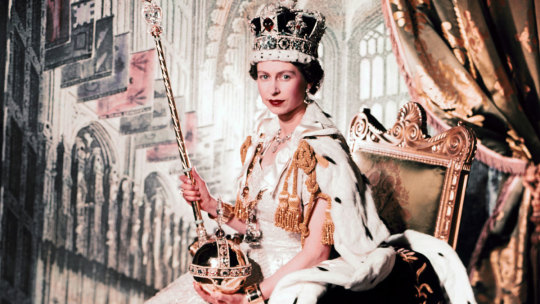
The 25-year-old Princess automatically succeeded to throne as Queen Elizabeth II after the death of her father George VI on 6 February 1952. Her dress included symbols from the Commonwealth realms, with embroidered maple leaves representing Canada (see also Emblems of Canada).
The Queen in Canada: 22 visits during her reign
The Queen made 22 official visits to Canada after ascending to the throne in 1952. Her first time here as Queen was in 1957, the last in 2010. During those years, she visited every province and territory.
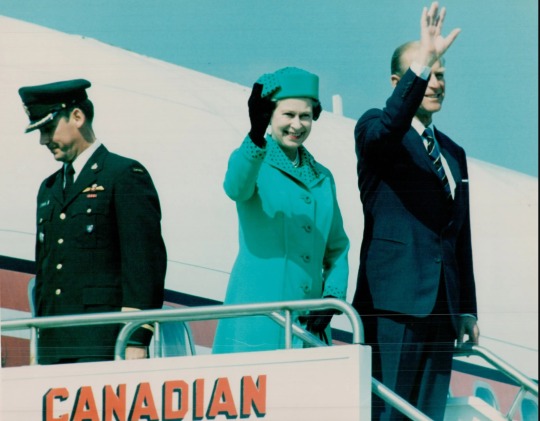
Prince Philip accompanied Elizabeth on her first official visit as Queen to Canada. The couple had visited previously in 1951 while Elizabeth was a princess. She delivered the throne speech for the 23rd Parliament on 14 October 1957. She also made a televised address, the first one she had done live, during which she praised Canada's population growth and strong currency.
The Queen and Prince Philip visited Charlottetown, Quebec City and Ottawa in 1964. She was invited by the prime minister to attend the centennial of two 1864 pre-Confederation conferences in Charlottetown and Quebec City.
The year 1967 was significant for Canada. The country was marking its centennial and the Queen was there for celebrations on Parliament Hill. She delivered a speech that day, describing Canada as "a nation that has grown and prospered in an atmosphere of freedom where differences are respected and where the rights of individual men and women to work out their own salvations have never been long denied."
After their time in Ottawa, the Queen and Prince Philip travelled to Montreal, arriving there on 3 July to visit Expo 67. The Queen also visited New Brunswick and Nova Scotia on this trip.
The Queen returned to Canada in 1982 for the proclamation of the Constitution. An estimated 32,000 people came out in the rain in Ottawa on 17 April 1982 for the ceremony on Parliament Hill.
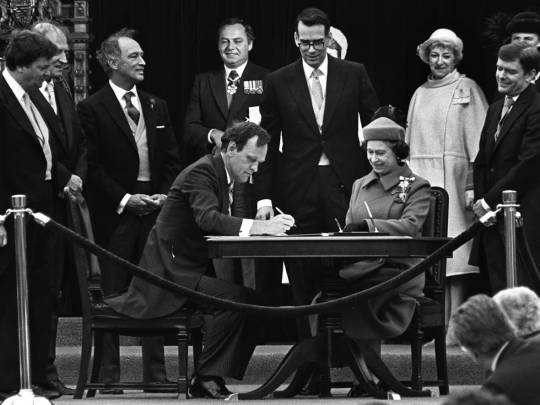
Following the signing of the document, the Queen delivered a speech, stating, "Today I have proclaimed this new Constitution, one that is truly Canadian at last. There could be no better moment for me as Queen of Canada to declare again my unbounded confidence in the future of this wonderful country."
Her 2002 visit to Canada was part of a year of celebration for the Queen as she marked 50 years as monarch. Elizabeth came to Canada as part of her Golden Jubilee tour — which also took her to New Zealand, Australia and Jamaica — and thanked Canadians for their "loyalty, encouragement and support" during her reign.
The Queen's final visit to Canada was in 2010. She visited five cities and spent Canada Day in Ottawa with about 100,000 others on Parliament Hill.
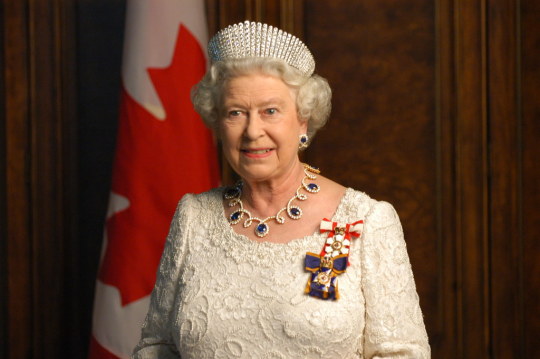
Elizabeth visited Canada more times as Queen than any other Commonwealth country. And she referred to Canada as "home" as she arrived in Halifax — a term she used throughout her reign when speaking of this country. She was Queen of Canada for almost half of the country’s existence.
An Enigmatic Personality
In her time as monarch, Elizabeth bore witness to profound changes at home and abroad, including the decline of the British Empire and decolonization of many African and Caribbean countries, along with the end of hostilities with Irish republicans.
As one of the most famous women in the world, she was also under great public scrutiny during some of the most painful moments of her life, including the death of her father, King George VI, the marriage breakups of three of her four children and the death of her former daughter-in-law, Diana, Princess of Wales.
But Elizabeth always had a keen sense of her role.
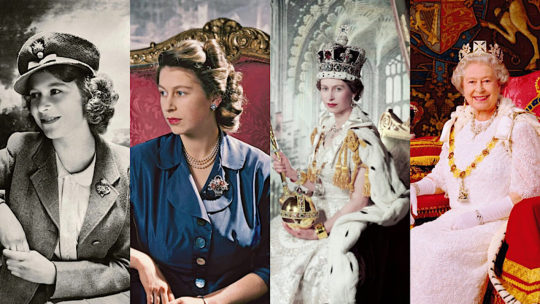
"I cannot lead you into battle, I do not give you laws or administer justice," she said during her first televised Christmas address in 1957. "But I can do something else: I can give you my heart and my devotion to these old islands and to all the peoples of our brotherhood of nations."
That sense of duty was central to her life, even before she ascended the throne. In a speech broadcast from Cape Town, South Africa, on her 21st birthday in 1947, she made that clear.
"I declare before you all that my whole life, whether it be long or short, shall be devoted to your service and the service of our great imperial family to which we all belong," she said.
Renowned as much for her composure as the colorful clothing she wore to make sure she could be seen in a crowd, Elizabeth rarely showed her true emotions in public. As a result, she was seen by many as a symbol of British resilience.
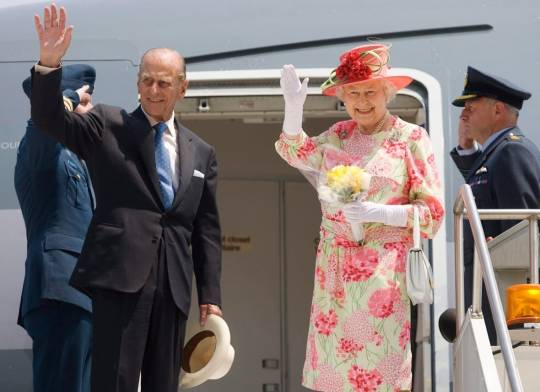
As recognizable and high-profile as Elizabeth was, however, she remained in many ways an elusive personality. She was known for her sense of humour and dry wit, but didn't do interviews and her personal views never got a public airing.
Certain interests seemed apparent — whether it was her love of horses or devotion to the corgis that would run up airplane steps with her.
Despite public debates about the necessity and future of the monarchy, Elizabeth remained a highly popular figure among Britons until her death.
In 2020, she was praised for offering a sense of calm strength and reassurance as the coronavirus pandemic continued.
During the COVID-19 pandemic, the Queen and Prince Philip isolated at Windsor Castle. Philip died on 9 April 2021, only months before his 100th birthday. The Queen and Prince Philip were married for 73 years. They had four children, eight grandchildren and 12 great-grandchildren. Queen sat alone during the funeral service, wearing a mask, at the front of St. George's Chapel before Philip’s casket was lowered into the royal vault.
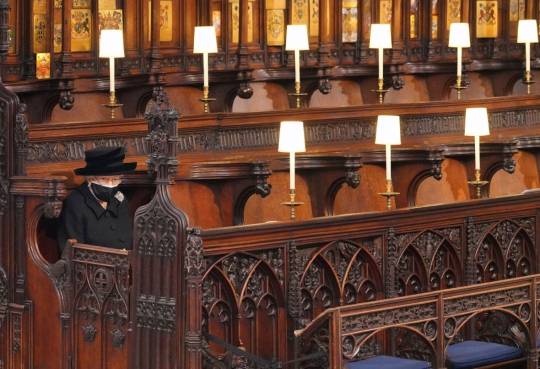
Upon Queen’s death, Charles automatically ascended to the role of king. He became the 62nd British monarch and, at age 73, the oldest ever to assume the throne.
Celebrations to Mark Queen’s Journey
The celebrations to mark the Queen’s 25th anniversary as monarch began on 6 February 1977. Elizabeth spent the day with her family at Windsor Castle. Church services to mark the occasion were held all month. The full jubilee celebrations were held in London on 6–7 June.
The celebrations to commemorate Elizabeth’s 50th year on the throne in 2002 were organized around six themes: Celebration, Community, Service, Past and future, Giving thanks, and Commonwealth. Elizabeth and Philip travelled extensively, attending events in every region of the UK, as well as in Canada, Australia, New Zealand and Jamaica.
On 9 September 2015, she surpassed Queen Victoria as the longest-reigning British monarch.
In early February 2022, Elizabeth marked 70 years on the throne, an unprecedented milestone for a British monarch and the official beginning of her Platinum Jubilee.
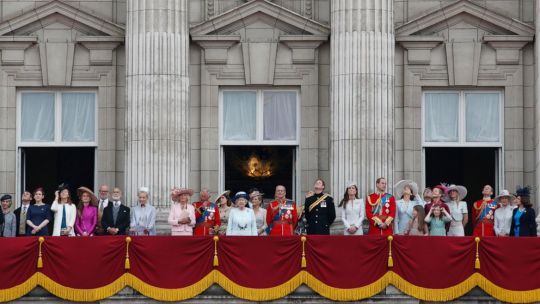
Later that month, Buckingham Palace announced she had tested positive for COVID-19. She recovered and continued to carry out virtual engagements, along with a few in-person meetings, including with Canadian Prime Minister Justin Trudeau and Gov. Gen. Mary Simon at Windsor Castle.
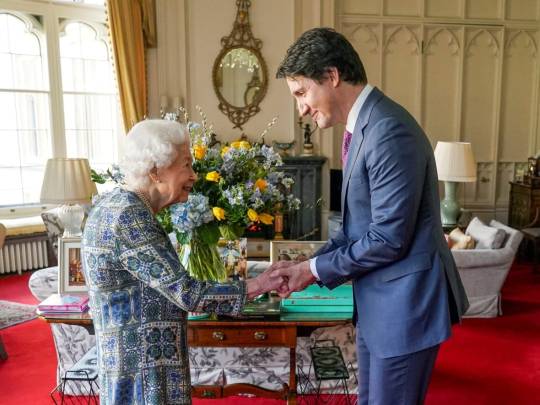
While Platinum Jubilee events continued largely without her public presence, she did appear on the balcony of Buckingham Palace at the beginning and end of the celebrations in early June.
"While I may not have attended every event in person, my heart has been with you all and I remain committed to serving you to the best of my ability, supported by my family." she said in a message as the Jubilee events concluded.
"I have been inspired by the kindness, joy and kinship that has been so evident in recent days, and I hope the renewed sense of togetherness will be felt for many years to come."

2 notes
·
View notes
Photo

Her Majesty QUEEN ELIZABETH II (1926-Died September 8th 2022,at 96) Queen of the United Kingdom and of 14 other sovereign countries from 6 February 1952 until her death.Her reign of 70 years and seven months is the longest of any British monarch.Elizabeth was born in Mayfair, London, as the first child of the Duke and Duchess of York (later King George VI and Queen Elizabeth). Her father acceded to the throne in 1936 upon the abdication of his brother, King Edward VIII, making Elizabeth the heir presumptive. She was educated privately at home and began to undertake public duties during the Second World War, serving in the Auxiliary Territorial Service. In November 1947, she married Philip Mountbatten, a former prince of Greece and Denmark, and their marriage lasted 73 years until his death in April 2021. They had four children together: Charles, Prince of Wales; Anne, Princess Royal; Prince Andrew, Duke of York; and Prince Edward, Earl of Wessex.When her father died in February 1952, Elizabeth—then 25 years old—became queen regnant of seven independent Commonwealth countries: the United Kingdom, Canada, Australia, New Zealand, South Africa, Pakistan, and Ceylon (known today as Sri Lanka), as well as Head of the Commonwealth. Elizabeth reigned as a constitutional monarch through major political changes such as the Troubles in Northern Ireland, devolution in the United Kingdom, the decolonisation of Africa, and the United Kingdom's accession to the European Communities and withdrawal from the European Union. The number of her realms has varied over time as territories have gained independence and some realms have become republics. Her many historic visits and meetings include state visits to China in 1986, Russia in 1994, the Republic of Ireland in 2011, and visits to or from five popes.Significant events include Elizabeth's coronation in 1953 and the celebrations of her Silver, Golden, Diamond, and Platinum jubilees in 1977, 2002, 2012, and 2022, respectively. Elizabeth is the longest-lived and longest-reigning British monarch, the oldest and longest-serving incumbent head of state, and the second-longest verifiable reigning sovereign monarch in world history. She has faced occasional republican sentiment and media criticism of her family, particularly after the breakdowns of her children's marriages, her annus horribilis in 1992, and the death of her former daughter-in-law Diana, Princess of Wales, in 1997. However, support for the monarchy in the United Kingdom remains consistently high, as did her personal popularity. Elizabeth died on 8 September 2022.https://en.wikipedia.org/wiki/Elizabeth_II
#Queen Elizabeth II#British Monarchs#The Royal Family#Kings & Queens#Notable Deaths in September 2022#Notable Deaths in 2022
4 notes
·
View notes
Text






Laurels to Mr. Abdullah Farooq, Student of Medico Abroad Consultants PUSUING 4th year mbbs at Gomel State Medical University, Belarus
On 22nd May, 2024 an international conference of the XVI Republican scientific and practical conference on “Problems and prospects for the development of modern medicine” was held at Gomel State Medical University, Belarus. The 2-day event had 28 scientific sections and graced by internationally renowned scientists from various countries.
Mr. Abdullah Farooq, the 4th year MBBS student at Gomel State Medical University, Belarus participated in the conference and presented his article on “Mental Health of Students of Gomel State Medical University” in the Dept. of Pathological Physiology and received 2nd Prize for his presentation.
Further, he received the 1st prize for his presentation of the article on “Interactions of Vascular cancer-associated fibroblasts with microcirculatory parameters of endometrial adenocarcinoma and vasculogenic mimicry” in the Dept. of Pathological Anatomy and Forensic Medicine.
We heart fully appreciate our student Mr. Farooq Abdullah for his participation and achievements in the International Conferences/Symposiums held at Gomel State Medical University, Belarus which is a regular feature and highlight of the studies in Belarus. We encourage all our students to avail such golden opportunities to participate in international seminars/conferences/symposiums and build their profile for a bright future ahead.
Medico Abroad Consultants are the directly authorized representative for MBBS admissions of Indian students in Gomel State Medical University, Belarus. For Admission inquiries to MBBS in Belarus visit Medico Abroad Office at Jubilee Hills, Hyderabad, India or Contact Mob: 9959114545, 9391015407 | E-mail: [email protected] or visit website www.medicoabroad.com
About Medico Abroad Services: https://www.youtube.com/watch?v=qNJluiWaeXc
You Tube: https://www.youtube.com/user/MedicoAbroad01
Facebook: https://www.facebook.com/medico.abroad.9
Twitter: https://twitter.com/
youtube
0 notes
Text

Diversity is now, supposedly, the primus inter pares of our political values. But ethnic and racial diversity, in all its colorful pageantry, is traditionally associated with empires, not republics. Diversity brings to mind Barbara Tuchman’s description of Queen Victoria’s Diamond Jubilee, with its splendid processions of Royal Nigerian Constabulary, Borneo Dyak Police, turbaned and bearded Lancers of Khapurthala and Badnagar, Zaptichs from Cyprus with their tasseled fezzes and black-maned ponies, Houssas from the Gold Coast, Chinese from Hong Kong, and Malays from Singapore, all paying homage to the great monarch. Imperial Rome was an equally spectacular kaleidoscope of nations and religions. By contrast, republican Rome was merely, austerely, Roman.
As a good Progressive, Wilson understood that modern democratic government is incompatible with multi-ethnic empire. But it took the cataclysmic breakdown of the Old World empires in the meat-grinder of World War I to bring the idea of national self-determination into political focus. It would be wise to remember that that civilization-shattering conflict was blamed in large part on the lack of congruence between state"
E.M. Oblomov
We didn't learn this lesson from WWI. The we didn't learn it again from WWII. How many mass graves will be filled with nameless soldiers before we finally get it??
0 notes